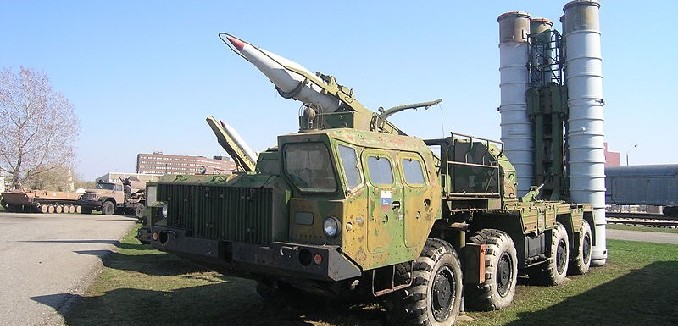Israeli diplomatic sources are expressing disappointment at the outcome of Tuesday’s meeting between Prime Minister Benjamin Netanyahu and Russian President Vladimir Putin.
Netanyahu, who initiated the meeting, flew to Sochi in a small plane for a quick rendezvous on the eve of the Jewish holiday of Shavuot. He was accompanied by Chief of Military Intelligence Major-General Aviv Kochavi and Deputy Foreign Minister Zeev Elkin, who served as a translator. Netanyahu hoped to persuade Russia not to honor its contract to supply surface-air S-300 missiles to the Syrian army. But Israeli sources told The Tower that Putin was evasive and refused to commit himself on the issue.
During the meeting with Putin, Netanyahu also clarified Israel’s position versus Syria. He explained that Israel would continue to obstruct by all means available — including continued air attacks — Syria’s efforts to ship long-range missiles to Hezbollah.
The Russian president, on the other hand, made clear that his country objects to any foreign intervention in Syria and advised Israel to restrain itself, arguing that further attacks may escalate the situation.
As a follow up to the Netanyahu-Putin meeting, and in order to ensure that the Israeli messages delivered to Putin actually reach Damascus, a senior Israeli official publicly warned Syria to stop supplying weapons to Hezbollah or be subject to further air strikes. Speaking to The New York Times, an unnamed Israeli official also made clear that if Syria were to respond to such strikes, Damascus would expose itself to a massive Israeli retaliation that would bring down the Assad regime.
A Kremlin spokesman also hinted this week following the Putin-Netanyahu meeting that President Putin did not promise Prime Minister Benjamin Netanyahu that his country would not provide Syria with advanced S-300 anti-aircraft systems.
Israeli defense experts worry that if the deal goes forward, Israel’s air supremacy and ability to control Syrian and Lebanese skies will be limited. U.S. sources tell The Tower that American military and government officials are also deeply concerned with the potential delivery of the systems, which would make the enforcement of a NATO or coalition-based no-fly zone virtually impossible.
The S-300 is considered to be one of the world’s most sophisticated and accurate air defense systems. It has the capability to identify, target and fire missiles at multiple airplanes simultaneously at a range of over 125 miles. For Israel that would mean any plane taking off from Israel’s northern air base in Ramat David, a situation that Israeli military officials would consider intolerable.
In the past, joint U.S.-Israel diplomatic pressure on Moscow paid off and Russia suspended a similar deal to equip Iran with the S-300 missiles. As part of understandings that previously prevented completion of the sale, the Israeli government agreed to allow Israel Aerospace Industry (IAI) to sell and license a Russian company to manufacture its advanced Heron UAV. Israel also promised to refrain from selling sophisticated weapons to Georgia, Russia’s rival in the Caucasus.
Summarizing this week’s Netanyahu-Putin meeting, Israeli sources tell The Tower, “It was a dialogue between two deaf people.”
[Photo: ShinePhantom / WikiCommons]




